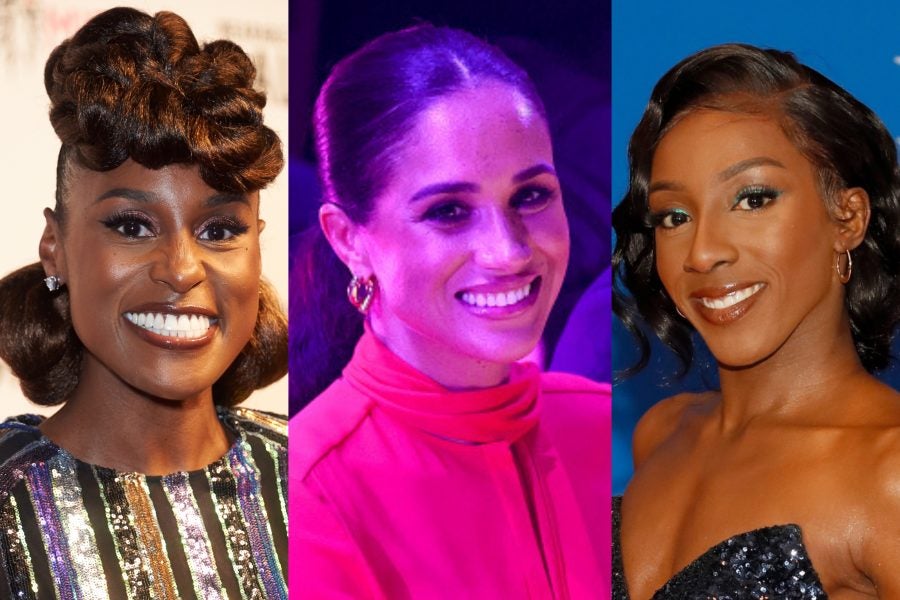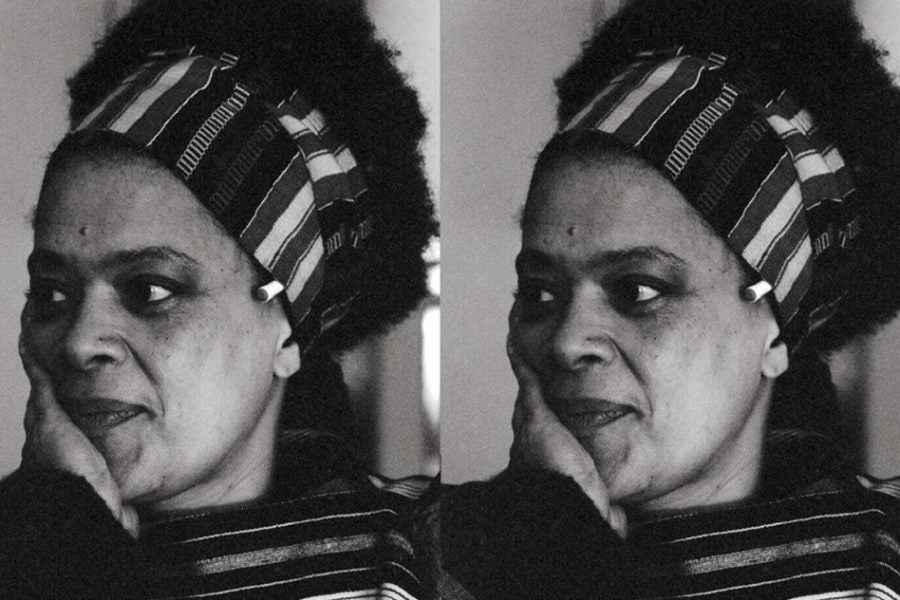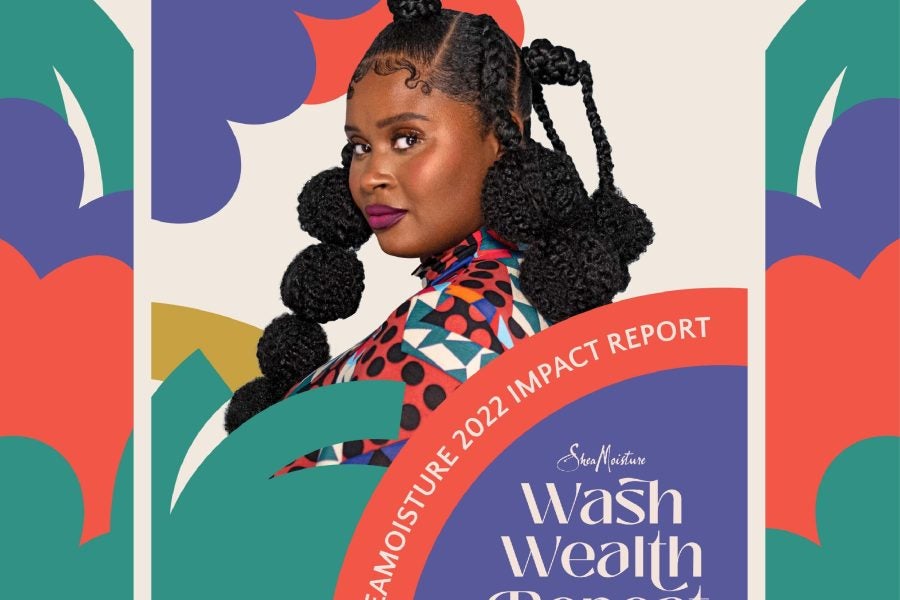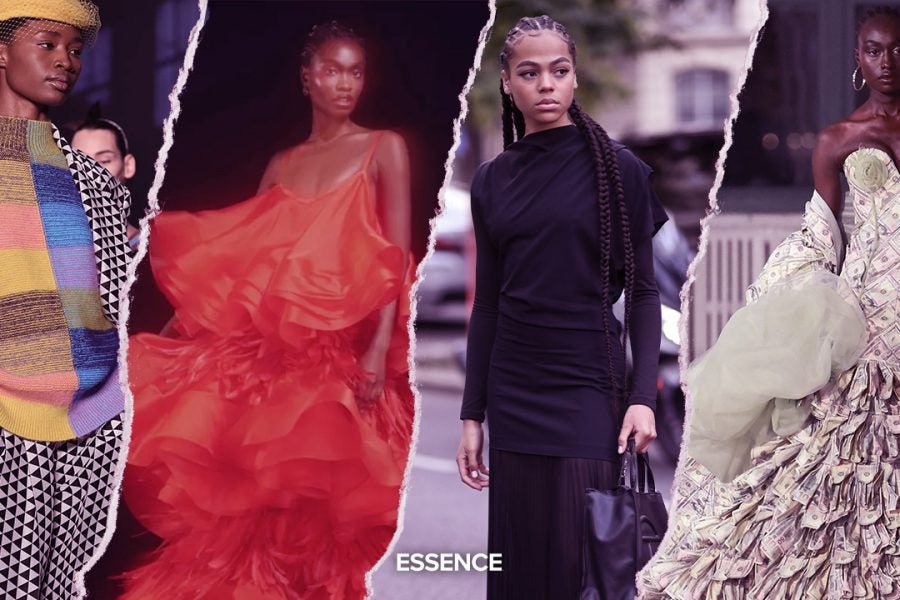
Today (Oct. 25), Spotify released the latest episode of Archetypes with Meghan Markle, The Duchess of Sussex. The new installment featured the Emmy-nominated actress, producer, and writer Issa Rae, along with comedian and talk host Ziwe.
During this powerful conversation with Issa Rae, Meghan examined the representation of Black women in the media and how this impacts the way Black women move through the world; and the idea that females of color are “angry,” Markle’s Nigerian lineage, and so much more.
The episode begins with a brief chat with Ziwe, where she opens up about the double standard she experiences as a Black woman hosting a late-night talk show and being labeled scary or rude when she is using the same interview style as her white male counterparts. With Ziwe, the late-night series on Showtime, she hopes to break that stigma through her art.
“I grew up with culturally conservative parents, who had a really strict understanding of women, and what women did, and how they lived,” the Nigerian multihyphenate said. “From that understanding, I also exist in society and I know what the expectations are of women. So, to be the character of Ziwe that is brash, rude, and thoughtful, is in direct opposition to what a woman is supposed to be publicly – according to sexism.”
After introducing the incomparable Issa Rae, the two spoke about the Insecure creator’s upbringing in Los Angeles; her experiences at Stanford, and how those environments molded her into the woman that she is today. During their talk, Meghan asked Issa why it was important to her to create Black characters that played against traditional labels, and to alter the public’s perception of Black women.
“When I was in college… I loved television – reality TV had just started to takeover – and there was this specific type of Black woman that was featured in these shows,” Rae said. “It was just like this ruthless Black woman, or this uncouth Black woman; we were made to laugh at them as opposed to laugh with them – it was just these caricatures of Black women, and I remember being so tired of that, but not conscious of the effect that it was having.”
“So for me it was about trying to create other images; trying to balance what was represented on television,” she continued. “So I started writing characters that were more like my friends and family members, and that was my effort to combat that.”
After talking about the impact of Insecure, Meghan took a quick pivot to speak with Dr. Emily Barnard, an expert on American Studies centered around the Black experience in the United States, to dissect how the “Angry Black Woman” trope played into Justice Ketanji Brown Jackson’s Senate confirmation hearings, and the pressure with having to represent an entire demographic of people; something that Rae too has to deal with.
As a showrunner, the California native has has to find balance when trying to voice her opinion. As a Black woman, giving a definitive perspective on something comes across as being “difficult,” or “hard to work with” in the entertainment industry.
“I never seek out being a b***h,” Rae said to Markle. “But I take the fear of being labeled as that when I want to convey my point of view, when I want to express my disappointment in something, when I want things to be better, I take away the fear of being labeled as such because I should have to fear that if I want something to be great.”
Meghan then asked Issa, “Was there a point in your life, and maybe it still happens to you now, because of the archetypes, especially as a black woman, do you feel that you’re allowed to be angry in certain moments?”
The actress replied, “Absolutely not. Because I can’t lose my cool, I can’t do that, especially as a black woman, but also just even as a public figure now. Because people are looking for ways to justify their perception of you.”
“That doesn’t mean I don’t get angry,” she added. “That might mean that I will vent my frustrations to someone that I trust, get it out of my system and then go in fix mode. And I think even personality wise, I’m always like, I don’t want to sit in my anger too long anyway because what does that do? I want to work on fixing something, but I want to be allowed to have that emotion because it’s an emotion.”







